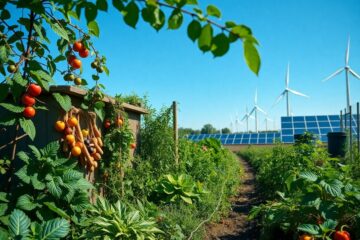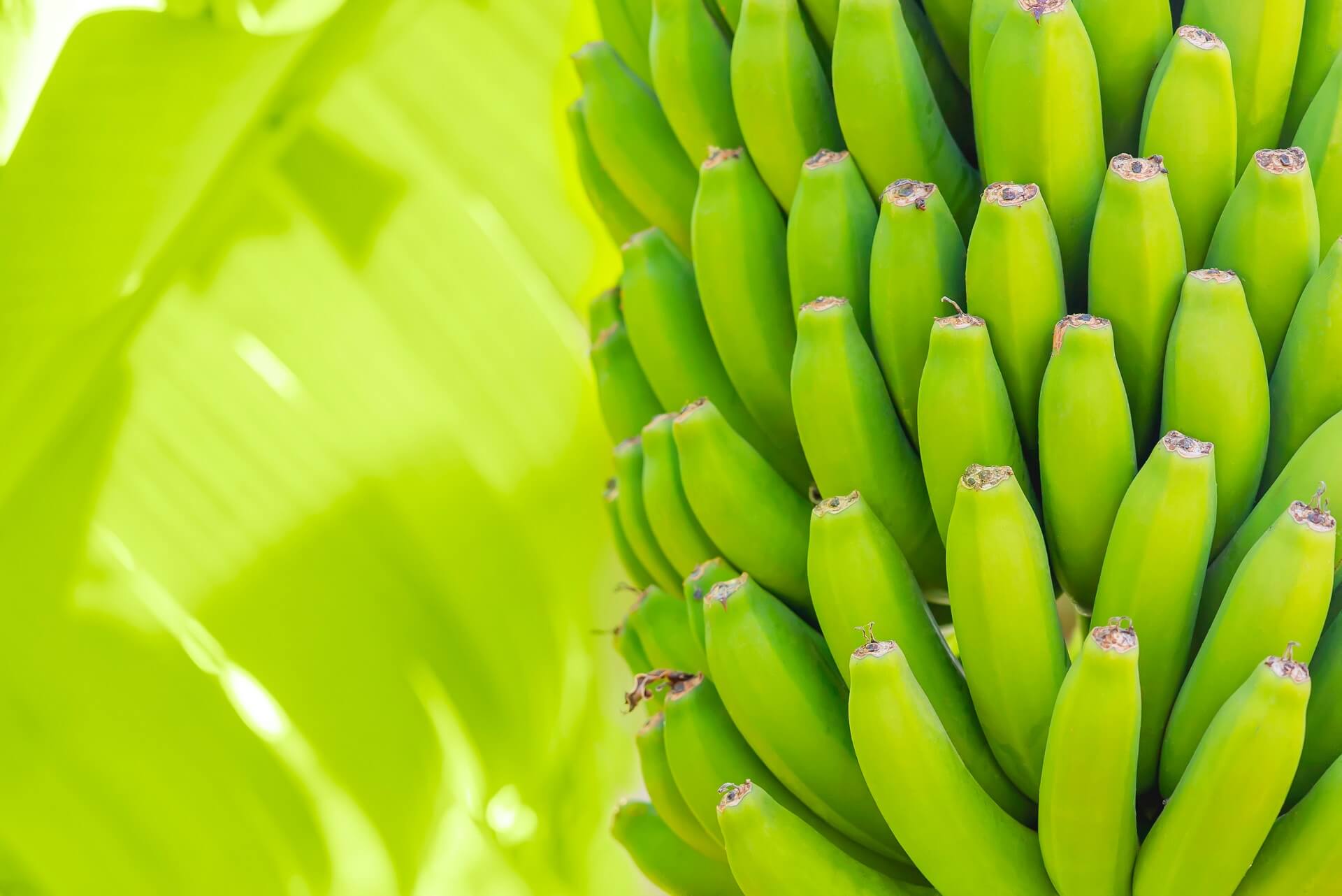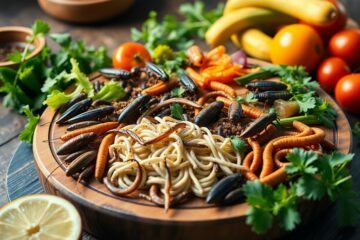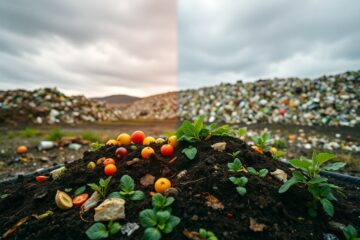Embarking on a vegetarian diet can be an enriching and transformative experience, but it’s crucial to approach it with caution and mindfulness. In this comprehensive guide, we will provide essential tips, critical nutrition information, and practical advice to help beginners navigate the potential pitfalls and obstacles of transitioning to a meat-free lifestyle. From understanding the importance of protein sources to learning how to plan balanced meals, this guide will equip you with the knowledge and resources needed to embark on your vegetarian journey confidently and successfully.
Table of Contents
Understanding Vegetarianism
Your journey towards a vegetarian diet starts with understanding the principles and practices of vegetarianism. The term “vegetarian” encompasses a variety of diet choices that exclude the consumption of animal flesh. Embracing vegetarianism involves a conscious effort to adopt a diet that prioritizes plant-based foods.
Types of Vegetarian Diets
Vegetarian diets can take on several forms, each with its own set of guidelines and restrictions. The lacto-ovo vegetarian diet allows for the consumption of dairy and eggs, while excluding meat and fish. The vegan diet goes a step further by eliminating all animal products, including dairy, eggs, and even honey. Additionally, there are variations such as the flexitarian diet, which primarily consists of plant-based foods but occasionally incorporates meat and fish. Recognizing the distinctions between these diets is crucial in determining which one aligns with your lifestyle and ethical beliefs.
| Lacto-ovo vegetarian | Includes dairy and eggs, excludes meat and fish |
| Vegan | Excludes all animal products, including dairy, eggs, and honey |
| Flexitarian | Primarily plant-based with occasional meat and fish |
| Pescatarian | Vegetarian diet with inclusion of fish |
| Raw food diet | Consists of unprocessed, uncooked plant foods |
Factors to Consider Before Starting
Flexitarianism is an ideal starting point for individuals transitioning to a vegetarian diet, as it allows for greater flexibility and may ease the adjustment period. The health implications of a vegetarian diet should also be taken into account, ensuring that essential nutrients such as protein, iron, and vitamin B12 are adequately obtained through plant-based sources. The environmental and ethical aspects of vegetarianism are additional factors that influence individuals in embracing this lifestyle. The decision to adopt a vegetarian diet requires careful consideration of these elements to ensure a balanced and informed approach.
- Flexitarianism provides a gradual transition to vegetarianism
- Ensuring adequate intake of essential nutrients such as protein and iron
- Consideration of environmental and ethical implications
To fully comprehend the impact of vegetarianism, it is important to explore the diverse options available and evaluate the personal motivations behind this dietary choice. Understanding the various types of vegetarian diets and the factors to consider beforehand will guide you towards a successful and fulfilling vegetarian lifestyle.
Step-by-Step Guide to Starting a Vegetarian Diet
For a successful transition to a vegetarian diet, it is important to take it one step at a time. This chapter will provide a detailed breakdown of the essential steps to help you kickstart your vegetarian journey. Whether you are making the switch for ethical, environmental, or health reasons, following these steps will ensure a smooth and sustainable transition.
Clearing Out Your Kitchen
Clearing out your kitchen of non-vegetarian items is the first crucial step in starting a vegetarian diet. Begin by removing all meat, poultry, and fish products from your refrigerator, freezer, and pantry. Check the labels of packaged foods for hidden animal-derived ingredients such as gelatin, lard, and rennet. Replace these items with plant-based alternatives like tofu, tempeh, and seitan. This will help eliminate temptation and make way for a cleaner, more vegetarian-friendly kitchen.
Shopping for Vegetarian Staples
Guide yourself to the grocery store with a clear plan in mind. Start by stocking up on nutrient-dense foods such as legumes, whole grains, fruits, and vegetables. Look for protein-rich foods like lentils, chickpeas, and quinoa, along with a variety of fresh produce. Experiment with new ingredients and explore the world of vegetarian cooking. Having a well-stocked kitchen will set you up for success as you embark on your vegetarian journey.
Starting a vegetarian diet can be overwhelming, so it’s important to take it one step at a time. As you become more familiar with vegetarian staples, you can gradually expand your repertoire and diversify your meals.
Learning to Read Labels
An essential skill for any vegetarian is learning to read food labels. Look out for hidden animal products and by-products in processed foods. Familiarize yourself with common non-vegetarian additives and ingredients. Being able to decipher food labels accurately will empower you to make informed choices and avoid consuming animal-derived ingredients.
It is important to note that even products labeled as “vegetarian” may contain sneaky non-vegetarian elements, so it’s crucial to scrutinize labels carefully before making a purchase.
Meal Planning and Prep
Clearing your path to success involves implementing a meal planning and prep routine. Designate specific days for meal planning, grocery shopping, and cooking. Prepare meals in advance to avoid succumbing to convenience foods or non-vegetarian options during busy days. This practice will not only save time and energy but also ensure that you have nutritious and satisfying vegetarian meals readily available.
Vegetarian meal planning and prep are essential for maintaining a balanced and varied diet. Incorporating a variety of nutrients and flavors will contribute to a positive vegetarian experience, setting the stage for long-term success.
Tips for a Sustainable Vegetarian Lifestyle
Unlike a fad diet, adopting a vegetarian lifestyle is a long-term commitment. It’s important to have the right strategies in place to ensure sustainability. Here are some tips to help you maintain a healthy and fulfilling vegetarian lifestyle:
Navigating Social Situations
To maintain a vegetarian lifestyle in social situations, it’s important to communicate your dietary choices clearly and confidently. Be open to discussing your reasons for being vegetarian, and consider bringing a dish to share at gatherings to ensure there are options available that align with your dietary preferences.
Finding Vegetarian Options When Dining Out
An important aspect of sustaining a vegetarian lifestyle is the ability to find suitable options when dining out. This may require researching restaurants in advance, asking for menu substitutions, or seeking out ethnic cuisines that naturally feature vegetarian dishes.
This can be a challenging aspect of transitioning to a vegetarian lifestyle, but with proper planning and flexibility, it is definitely achievable. By being aware of your options and proactive in your approach, you can enjoy dining out while staying true to your vegetarian principles.
Staying Motivated
On your journey to a vegetarian lifestyle, it’s important to stay motivated and remind yourself of the reasons why you chose this path. Surround yourself with supportive friends and communities, seek out inspirational resources such as books and documentaries, and continue to educate yourself about the health benefits and ethical considerations of a vegetarian diet.
Integrating Exercise for Balance
The physical aspect of a vegetarian lifestyle is just as important as the dietary aspect. Exercise is crucial for maintaining overall health and well-being. Whether it’s yoga, running, or weight training, finding a form of exercise that you enjoy will help create a balanced vegetarian lifestyle.
The Pros and Cons of a Vegetarian Diet
Pros
| 1. Improved heart health | 1. Potential nutrient deficiencies |
| 2. Lower risk of certain cancers | 2. Difficulty eating out |
| 3. Weight management | 3. Social challenges |
| 4. Increased fiber intake | 4. Planning and preparation |
| 5. Reduced risk of type 2 diabetes | 5. Judgment from others |
Cons
Health Benefits
Benefits of a vegetarian diet include improved heart health, lower risk of certain cancers, weight management, increased fiber intake, and reduced risk of type 2 diabetes. A vegetarian diet is rich in fruits, vegetables, and whole grains, providing essential nutrients and promoting overall well-being.
However, it is important to note that there can be potential nutrient deficiencies, difficulty in eating out, social challenges, and the need for careful planning and preparation when following a vegetarian diet.
Environmental Impact
Benefits of a vegetarian diet on the environment are significant. By reducing the demand for animal products, a vegetarian diet can help conserve water, reduce greenhouse gas emissions, and minimize the impact on natural habitats. This makes a vegetarian diet more sustainable and eco-friendly.
Impact of a vegetarian diet on the environment is a crucial aspect to consider, as it aligns with the principles of conservation, sustainability, and environmental responsibility. By choosing a vegetarian diet, individuals can contribute to the preservation of natural resources and the protection of the planet’s biodiversity.
Challenges and How to Overcome Them
Dietary challenges of a vegetarian diet may include potential nutrient deficiencies, difficulty eating out, social challenges, and the need for careful planning and preparation. However, these challenges can be overcome by educating oneself about nutrition, researching vegetarian-friendly dining options, finding support from like-minded individuals, and dedicating time to meal planning and preparation.
Challenges
Challenges of following a vegetarian diet may include potential nutrient deficiencies, difficulty eating out, social challenges, and the need for careful planning and preparation. Overcoming these challenges requires dedication, education, and a supportive community to ensure a successful transition to a vegetarian lifestyle.
Final Words
Summing up, the ultimate beginner’s guide to starting a vegetarian diet provides valuable insights and practical tips for those looking to make the transition to a plant-based lifestyle. By understanding the benefits of a vegetarian diet, learning about essential nutrients, and discovering delicious and nutritious meal options, beginners can feel confident and empowered in their dietary choices. It’s important to remember that everyone’s journey to vegetarianism is unique, and it’s okay to take gradual steps towards a meat-free lifestyle. With commitment, knowledge, and a willingness to explore new foods, anyone can successfully embrace the vegetarian lifestyle and enjoy its numerous health and environmental benefits.
FAQ
Q: What are the health benefits of starting a vegetarian diet?
A: A vegetarian diet can lower the risk of heart disease, high blood pressure, diabetes, and certain types of cancer. It also tends to be high in fiber, vitamins, and antioxidants, which can contribute to overall better health.
Q: How can I ensure I get enough protein on a vegetarian diet?
A: Plant-based sources of protein include beans, lentils, tofu, tempeh, seitan, nuts, and seeds. By incorporating these foods into your meals and snacks, you can easily meet your protein needs on a vegetarian diet.
Q: Are there any potential nutrient deficiencies to be aware of when starting a vegetarian diet?
A: It’s important to pay attention to getting enough iron, zinc, calcium, vitamin D, and vitamin B12 on a vegetarian diet. These nutrients can be found in foods like dark leafy greens, whole grains, fortified plant milks, and supplements, if necessary.

Our contributing author is a passionate advocate for eco-friendly living and sustainability. With a background in eco-life, they are dedicated to inspiring and empowering individuals to adopt environmentally conscious lifestyles. Through insightful articles, they share practical tips, innovative solutions, and thought-provoking perspectives to promote a greener, more sustainable world. Join them on the journey towards eco-smart living and discover how small choices can make a big impact. 🌱









